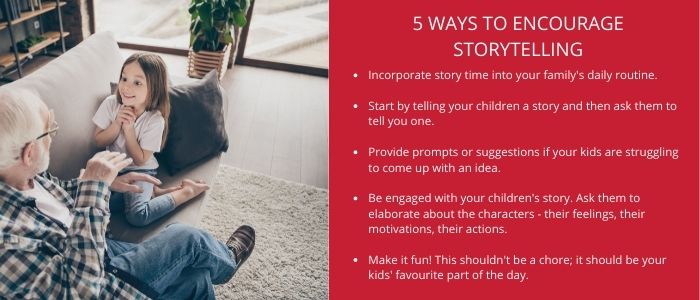
Everyone enjoys a good story and the sooner we teach our kids to start spinning their own yarns the better.
Imogen Clyde reports
Have you ever wondered what it is about the promise of a story that has us sitting up in our seats? Are you sitting comfortably? Then let’s begin.
The truth is, storytelling is at the very heart of human interaction, we literally talk in stories. Every day we each tell, and listen to, hundreds of stories: ‘I had such a weird dream last night; You’ll never guess what happened at work today; I met so-and- so this morning, and she said: Remember that family who lived at the end of our street who…’, and so on. Between teller and listener, a symbiotic relationship exists; we need to tell, and be told, stories.
Why is that? Well, it turns out sharing really is about caring. As individuals, it’s impossible for us to be in more than one place at a time, and so we look to each other to share our experiences of the world. Anthropologists tell us we most likely began telling stories as a way of educating or warning others about the beneficial or dangerous situations we encountered. Author Lisa Cron, in her book, Wired For Story, believes story is what first enabled us to visualise what might happen in future situations, and prepare for them.




